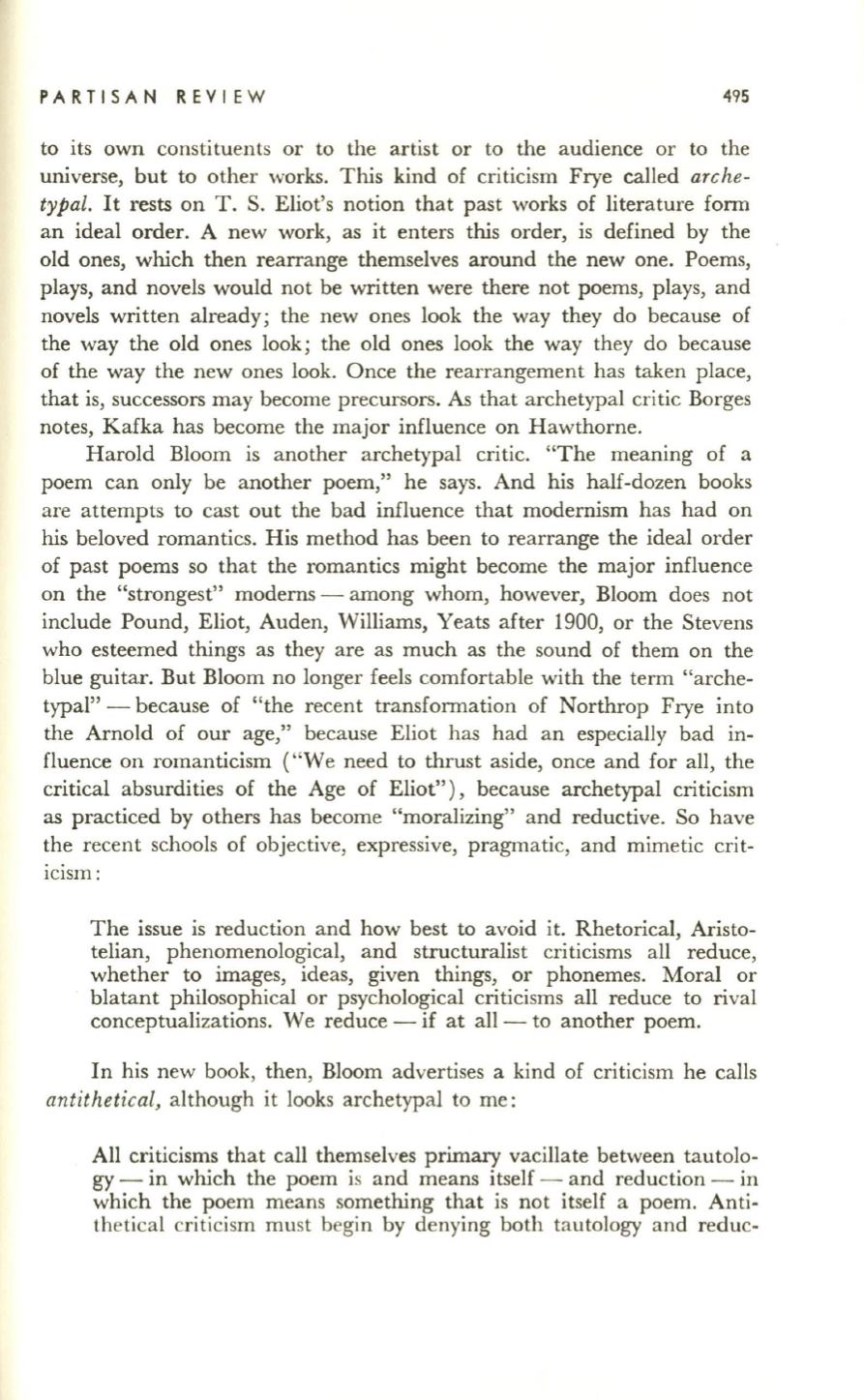
PARTISAN REVIEW
495
to its own constituents or to the artist or to the audience or to the
universe, but to other works. This kind of criticism Frye called
arche–
typal.
It
rests on T. S. Eliot's notion that past works of literature form
an ideal order. A new work, as it enters this order, is defined by the
old ones, which then rearrange themselves around the new one. Poems,
plays, and novels would not be written were there not poems, plays, and
novels written already; the new ones look the way they do because of
the way the old ones look; the old ones look the way they do because
of the way the new ones look. Once the rearrangement has taken place,
that is, successors may become precursors.
As
that archetypal critic Borges
notes, Kafka has become the major influence on Hawthorne.
Harold Bloom is another archetypal critic. "The meaning of a
poem can only be another poem," he says. And his half-dozen books
are attempts to cast out the bad influence that modernism has had on
his beloved romantics. His method has been to rearrange the ideal order
of past poems so that the romantics might become the major influence
on the "strongest" moderns - among whom, however, Bloom does not
include Pound, Eliot, Auden, Williams, Yeats after 1900, or the Stevens
who esteemed things as they are as much as the sound of them on the
blue guitar. But Bloom no longer feels comfortable with the term "arche–
typal" - because of "the recent transformation of Northrop Frye into
the Arnold of our age," because Eliot has had an especially bad in–
fluence on romanticism ("We need to thrust aside, once and for all, the
critical absurdities of the Age of Eliot"), because archetypal criticism
as practiced by others has become "moralizing" and reductive. So have
the recent schools of objective, expressive, pragmatic, and mimetic crit–
icism:
The issue is reduction and how best to avoid it. Rhetorical, Aristo–
telian, phenomenological, and structuralist criticisms all reduce,
whether to images, ideas, given things, or phonemes. Moral or
blatant philosophical or psychological criticisms all reduce to rival
conceptualizations. We reduce - if at all- to another poem.
In his new book, then, Bloom advertises a kind of criticism he calls
antithetical,
although it looks archetypal to me:
All criticisms that call themselves primary vacillate between tautolo–
gy - in which the poem is and means itself - and reduction - in
which the poem means something that is not itself a poem. Anti–
thetical criticism must begin by denying both tautology and reduc-


